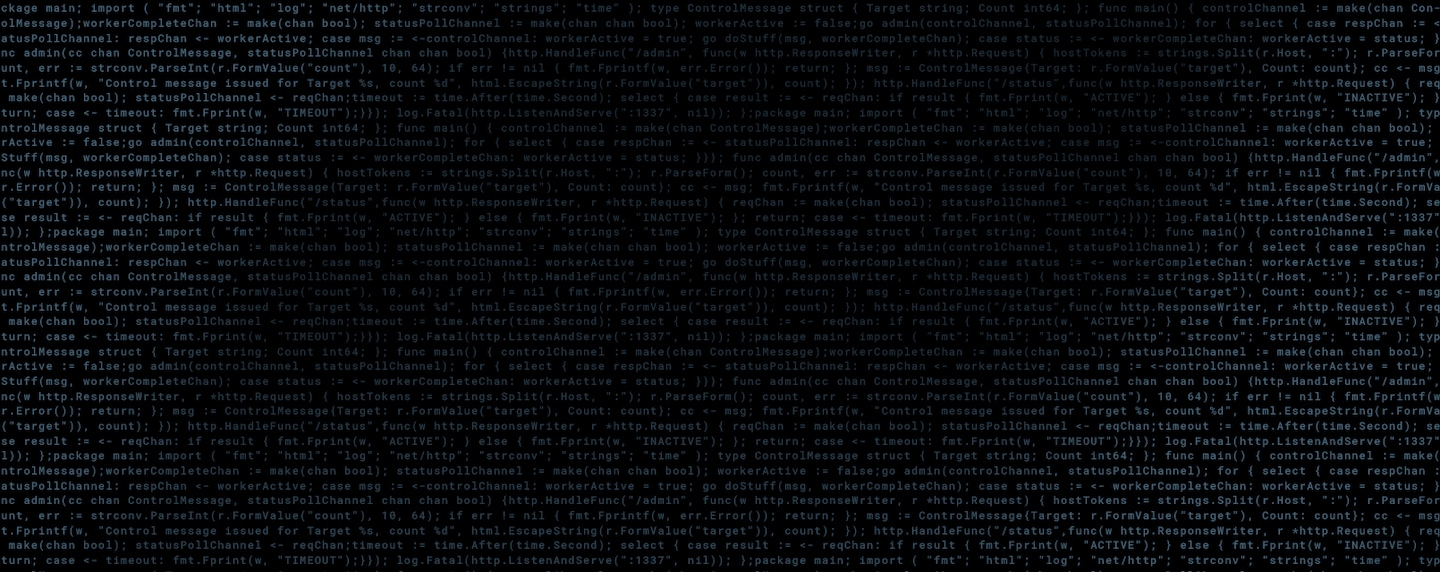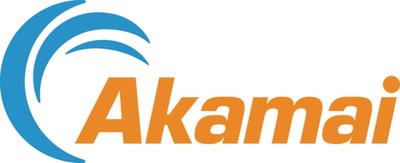Bankruptcy Court Approves Winning Akamai Bid for Select Assets of Edgio
The court approval follows Akamai submitting the winning bid for the select assets during Edgio's 363 bankruptcy auction on
When the transaction closes, several hundred net new Akamai customers will have a clear path and the necessary support to smoothly migrate to a best-in-class and reliable provider of the services they need prior to Edgio ceasing operations of its content delivery network. The customers will also have immediate access to the full portfolio of Akamai's cybersecurity and cloud computing services.
"Akamai is offering Edgio customers a smooth, secure transition without impacting their business or that of their end users," said
For the fourth quarter of 2024, Akamai expects this transaction to add approximately
For the full year 2025, Akamai anticipates this transaction will add approximately
"We believe this transaction will create significant value for Akamai and our shareholders," said
The transaction is expected to close in early
About Akamai
Akamai is the cybersecurity and cloud computing company that powers and protects business online. Our market-leading security solutions, superior threat intelligence, and global operations team provide defense-in-depth to safeguard enterprise data and applications everywhere. Akamai's full-stack cloud computing solutions deliver performance and affordability on the world's most distributed platform. Global enterprises trust Akamai to provide the industry-leading reliability, scale, and expertise they need to grow their business with confidence. Learn more at akamai.com and akamai.com/blog, or follow
Contacts
Akamai Public Relations
AkamaiPR@akamai.com
Akamai Investor Relations
IR-InvestorRelations@akamai.com
Akamai Statement Under the Private Securities Litigation Reform Act
This press release contains statements that are not statements of historical fact and constitute forward-looking statements for purposes of the safe harbor provisions under The Private Securities Litigation Reform Act of 1995, including, but not limited to, statements about: management's guidance regarding the expected impact of the transaction on Akamai, including its expected impact on revenue, non-GAAP net income per diluted share, capital expenditures, and new customer additions; the potential benefits of the transaction to Akamai, its customers and its shareholders; expectations regarding customer migration in connection with the transaction; expected transition services costs; the expected duration of Edgio's transition and wind-down period; and the expected closing date of the transaction. Each of the forward-looking statements is subject to change as a result of various important factors, many of which are beyond the company's control, including, but not limited to: the risk that the transaction may not be completed in a timely manner or at all; the parties' ability to satisfy closing conditions; the occurrence of any event, change or other circumstance that could give rise to the termination of the transaction agreements; Akamai being unable to achieve the anticipated benefits of the transaction; the risk that customer migration may be more difficult, time-consuming or costly than expected; the retention of key personnel during the transition period; potential adverse reactions or changes to business relationships resulting from the announcement or completion of the proposed transaction; effects of competition, including pricing pressure and changing business models; impact of macroeconomic trends, including economic uncertainty, turmoil in the financial services industry, the effects of inflation, rising and fluctuating interest rates, foreign currency exchange rate fluctuations, securities market volatility and monetary supply fluctuations; continuing supply chain and logistics costs, constraints, changes or disruptions; defects or disruptions in Akamai's products or IT systems, including cyber-attacks, data breaches or malware; changes to economic, political and regulatory conditions in
Use of Non-GAAP Financial Measures
In addition to providing financial measurements based on generally accepted accounting principles in
Management believes that these non-GAAP financial measures reflect Akamai's ongoing business in a manner that allows for meaningful comparisons and analysis of trends in the business, as they facilitate comparison of financial results across accounting periods and to those of our peer companies. Management also believes that these non-GAAP financial measures enable investors to evaluate Akamai's operating results and future prospects in the same manner as management. These non-GAAP financial measures may exclude expenses and gains that may be unusual in nature, infrequent or not reflective of Akamai's ongoing operating results.
The non-GAAP financial measures do not replace the presentation of Akamai's GAAP financial results and should only be used as a supplement to, not as a substitute for, Akamai's financial results presented in accordance with GAAP.
In addition, the financial guidance contained in this press release that is provided on a non-GAAP basis cannot be reconciled to the closest GAAP measures without unreasonable effort because of the unpredictability of the amounts and timing of events affecting the items we exclude from non-GAAP measures. For example, stock-based compensation is unpredictable for Akamai's performance-based awards, which can fluctuate significantly based on current expectations of the future achievement of performance-based targets. Amortization of intangible assets, acquisition-related costs and restructuring costs are all impacted by the timing and size of potential future actions, which are difficult to predict. In addition, from time to time, Akamai excludes certain items that occur infrequently, which are also inherently difficult to predict and estimate. It is also difficult to predict the tax effect of the items we exclude and to estimate certain discrete tax items, such as the resolution of tax audits or changes to tax laws. As such, the costs that are being excluded from non-GAAP guidance are difficult to predict and a reconciliation or a range of results could lead to disclosure that would be imprecise or potentially misleading. Material changes to any one of the exclusions could have a significant effect on our guidance and future GAAP results.
Akamai's definition of the non-GAAP measures used in this press release are outlined below:
Non-GAAP net income per diluted share – Non-GAAP net income divided by weighted average diluted common shares outstanding. Diluted weighted average common shares outstanding are adjusted in non-GAAP per share calculations for the shares that would be delivered to Akamai pursuant to the note hedge transactions entered into in connection with the issuances of
Non-GAAP net income – GAAP net income adjusted for the following tax-affected items: amortization of acquired intangible assets; stock-based compensation; amortization of capitalized stock-based compensation; acquisition-related costs; restructuring charges; amortization of debt issuance costs; amortization of capitalized interest expense; certain gains and losses on investments; gains and losses from equity method investment; and other non-recurring or unusual items that may arise from time to time.
The non-GAAP adjustments, and Akamai's basis for excluding them from non-GAAP financial measures, are outlined below:
- Amortization of acquired intangible assets – Akamai has incurred amortization of intangible assets, included in its GAAP financial statements, related to various acquisitions Akamai has made. The amount of an acquisition's purchase price allocated to intangible assets and term of its related amortization can vary significantly and is unique to each acquisition; therefore, Akamai excludes amortization of acquired intangible assets from its non-GAAP financial measures to provide investors with a consistent basis for comparing pre- and post-acquisition operating results.
- Stock-based compensation and amortization of capitalized stock-based compensation – Stock-based compensation is an important aspect of the compensation paid to Akamai's employees which includes long-term incentive plans to encourage retention, performance-based plans to encourage achievement of specified financial targets and also short-term incentive awards with a one year vest. The grant date fair value of the stock-based compensation awards varies based on the stock price at the time of grant, varying valuation methodologies, subjective assumptions and the variety of award types. This makes the comparison of Akamai's current financial results to previous and future periods difficult to interpret; therefore, Akamai believes it is useful to exclude stock-based compensation and amortization of capitalized stock-based compensation from its non-GAAP financial measures in order to highlight the performance of Akamai's core business and to be consistent with the way many investors evaluate its performance and compare its operating results to peer companies.
- Acquisition-related costs – Acquisition-related costs include transaction fees, advisory fees, due diligence costs and other direct costs associated with strategic activities, as well as certain additional compensation costs payable to employees acquired from the
Linode acquisition if employed for a certain period of time. The additional compensation cost was initiated by and determined by the seller, and is in addition to normal levels of compensation, including retention programs, offered by Akamai. Acquisition-related costs are impacted by the timing and size of the acquisitions, and Akamai excludes acquisition-related costs from its non-GAAP financial measures to provide a useful comparison of operating results to prior periods and to peer companies because such amounts vary significantly based on the magnitude of the acquisition transactions and do not reflect Akamai's core operations. - Restructuring charge – Akamai has incurred restructuring charges from programs that have significantly changed either the scope of the business undertaken by the Company or the manner in which that business is conducted. These charges include severance and related expenses for workforce reductions, impairments of long-lived assets that will no longer be used in operations (including acquired intangible assets, right-of-use assets, other facility-related property and equipment and internal-use software) and termination fees for any contracts canceled as part of these programs. Akamai excludes these items from its non-GAAP financial measures when evaluating its continuing business performance as such items vary significantly based on the magnitude of the restructuring action and do not reflect expected future operating expenses. In addition, these charges do not necessarily provide meaningful insight into the fundamentals of current or past operations of its business.
- Amortization of debt issuance costs and capitalized interest expense – Akamai has convertible senior notes outstanding that mature in 2029, 2027 and 2025. The issuance costs of the convertible senior notes are amortized to interest expense and are excluded from Akamai's non-GAAP results because management believes the non-cash amortization expense is not representative of ongoing operating performance.
- Gains and losses on investments – Akamai has recorded gains and losses from the disposition, changes to fair value and impairment of certain investments. Akamai believes excluding these amounts from its non-GAAP financial measures is useful to investors as the types of events giving rise to these gains and losses are not representative of Akamai's core business operations and ongoing operating performance.
- Gains and losses from equity method investment – Akamai records income or losses on its share of earnings and losses from its equity method investment, and any gains from returns of investments or impairments. Akamai excludes such income and losses because it does not have direct control over the operations of the investment and the related income and losses are not representative of its core business operations.
- Income tax effect of non-GAAP adjustments and certain discrete tax items – The non-GAAP adjustments described above are reported on a pre-tax basis. The income tax effect of non-GAAP adjustments is the difference between GAAP and non-GAAP income tax expense. Non-GAAP income tax expense is computed on non-GAAP pre-tax income (GAAP pre-tax income adjusted for non-GAAP adjustments) and excludes certain discrete tax items (such as the impact of intercompany sales of intellectual property related to acquisitions), if any. Akamai believes that applying the non-GAAP adjustments and their related income tax effect allows Akamai to highlight income attributable to its core operations.
![]() View original content to download multimedia:https://www.prnewswire.com/news-releases/bankruptcy-court-approves-winning-akamai-bid-for-select-assets-of-edgio-302316936.html
View original content to download multimedia:https://www.prnewswire.com/news-releases/bankruptcy-court-approves-winning-akamai-bid-for-select-assets-of-edgio-302316936.html
SOURCE


